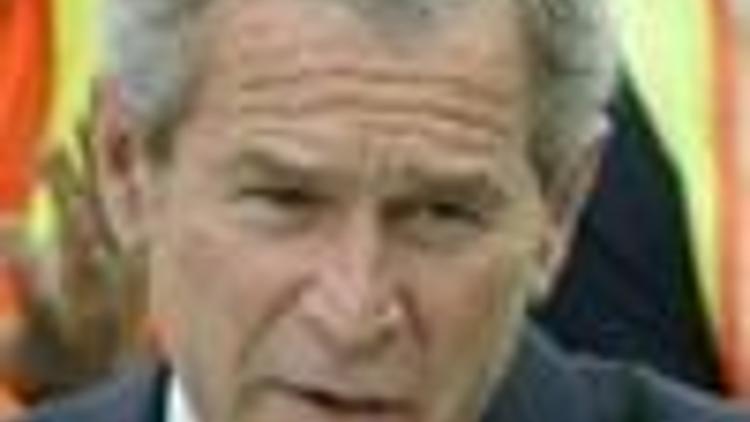Bush: Economy in slowdown, checks on the way
Güncelleme Tarihi:

President George W. Bush said on Friday the U.S. economy is in a slowdown but tax rebates that will start hitting consumers' bank accounts next week should help. Bush spoke as a measure of consumer confidence hit a 26-year low.
"It's obvious our economy is in a slowdown," Bush said in urging taxpayers to contact the federal government about their eligibility for rebates amounting to as much as $600 per adult and $300 per child, depending on their income.
"The money's going to help Americans offset the high prices we're seeing at the gas pump and the grocery store and it will also give our economy a boost to help us pull out of this economic slowdown," he added.
Top Democrats in Congress, however, said the rebate checks may not be enough to spark a recovery and a second stimulus package may be needed.
"The strain of the economic downturn on middle- and low-income families demands, in my view, consideration of a second stimulus package," House of Representatives Speaker Nancy Pelosi told reporters in Washington.
Pelosi, a California Democrat, declined to say whether she was making any progress in talks with the Bush administration on additional legislation. She has suggested new spending on infrastructure projects, increased food stamps and expanded unemployment benefits -- measures that were left out of the $152 billion stimulus package swiftly passed in February.
U.S. Treasury Secretary Henry Paulson told Reuters on Thursday he was willing to listen to Pelosi's ideas to further aid the economy in connection with arranging a vote on the Bush administration's proposed Colombia free-trade agreement.
Paulson also said in an interview that the Treasury had accelerated its schedule for distributing the rebate payments to start on Monday from a previous planned start in early May after tax returns were processed.
He said Americans would receive nearly 7.7 million Americans direct deposit payments next week, with $50 billion in rebates flooding into the economy by the end of May. Distribution of more than $100 billion in rebate payments would be largely complete by the end of June.
Bush said the first paper rebate checks would be sent out on May 9. He urged Americans to file their tax returns with the Internal Revenue Service to ensure that they receive a check.
Bush has said the U.S. economy is experiencing a slowdown, but not a recession against a background of rising unemployment as well as increasing energy and food prices and continued declines in home prices in many areas.
GLOOMY SENTIMENT
But the Reuters/University of Michigan consumer sentiment index on Friday showed a sour mood among Americans, hitting its weakest level in 26 years amid heightened worries over inflation and housing.
The April gauge fell deeper into recessionary territory, to 62.6 from 69.5 in March. As a result, Americans are increasingly likely to use their tax rebate to reduce debt or build savings, rather than spend on big-ticket items that would bolster economic activity.
Consumers worried about future living standards were reining in spending, the survey group said in a statement.
"Although the tax rebate will boost spending temporarily, the global rise in food and fuel prices, the declines in home values, and changes in credit conditions are likely to persist for some time and lengthen the period of stagnation in consumption," the group said. "Coupled with weaker job and income growth, these factors have the potential to cause deeper cutbacks in consumption than now anticipated."
The survey group said the data now points toward the likelihood of a relapse in spending later in 2008 and continuing into early 2009.
"Whatever the American people do with these checks will benefit the economy, whether they're buying products, whether they're helping to pay their gas bills, or whether they're paying off their credit cards, putting more liquidity back into the market," said House Republican Leader John Boehner of Ohio. "The American people are bright. They'll figure out how to spend this money the best way possible."

